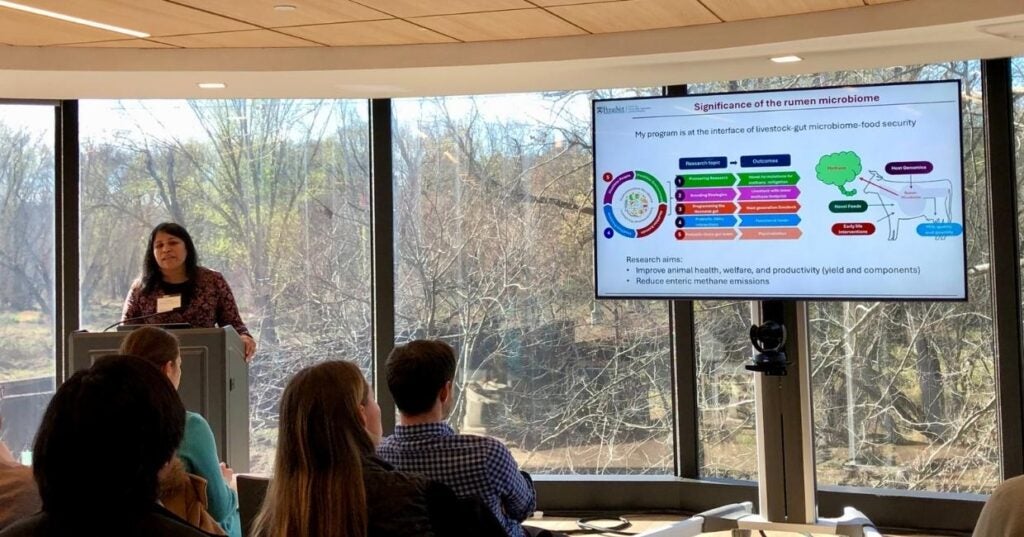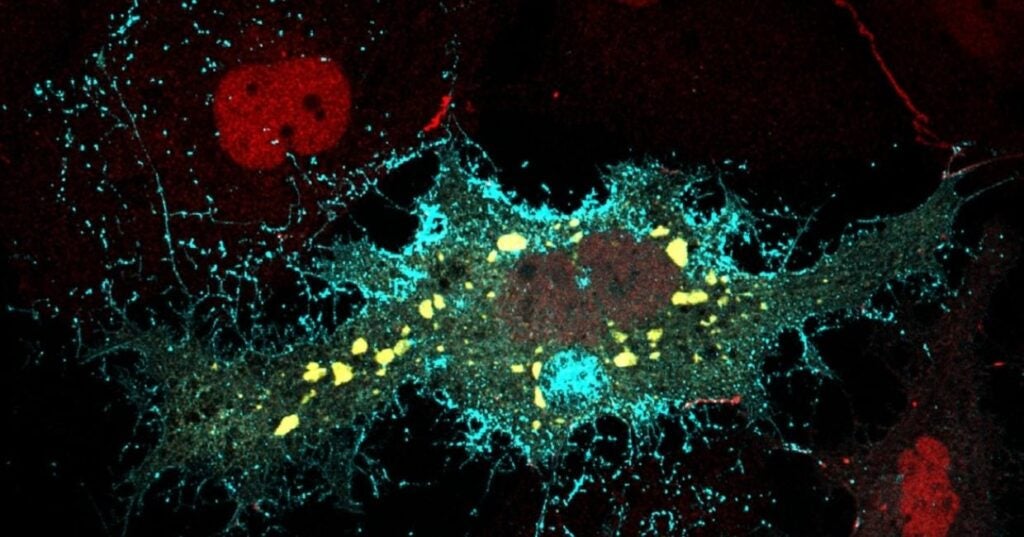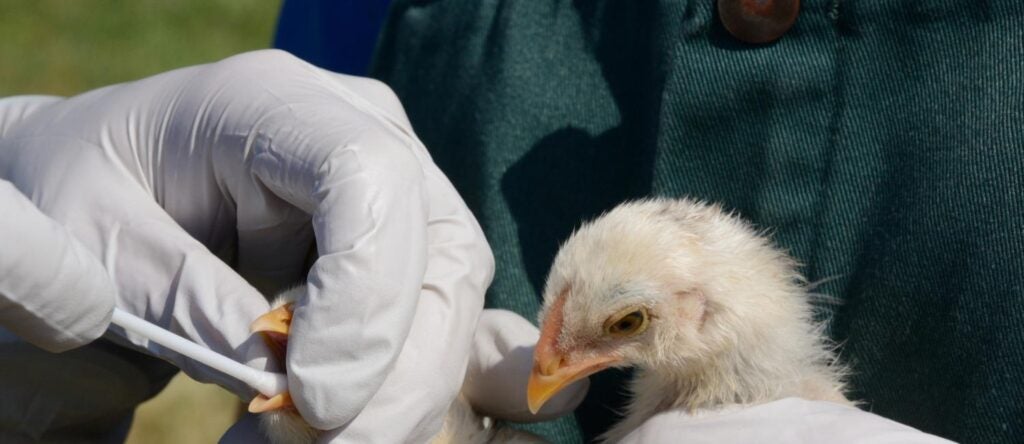News Articles
Another raw pet food brand contaminated with bird flu infects more cats (link is external)
Dr. Stephen Cole comments on cats becoming sick with avian influenza.

Penn Vet Scientist Receives Grant to Study Unconventional T Cell Response to Advance Potential HIV/AIDS Vaccine Development
Michael J. Hogan, PhD, receives W.W. Smith Charitable Trust support to investigate cell biology of MHC-E-restricted T cell response

Important Tips from Penn Vet to Keep Pets Safe During the Holidays
Lisa Murphy, VMD, professor of toxicology, and Deborah Mandell, VMD, Service Head of the Emergency Service at Penn Vet’s Ryan Hospital, offer the following tips to keep pets healthy and…
Here’s why bird flu fears are intensifying
Dr. Louise Moncla comments on outbreaks of avian influenza in dairy cattle.

Penn Vet’s Institute for Infectious and Zoonotic Diseases Hosts Inaugural Fall Research Retreat
The University of Pennsylvania (Penn) School of Veterinary Medicine’s (Penn Vet) Institute for Infectious and Zoonotic Diseases (IIZD) hosted its inaugural research retreat on November 15 in Chadds Ford, Pa.…

Research on key host pathways has implications for Ebola and beyond (link is external)
Mortality rates from Ebola outbreaks can be as high as 90%, according to the Centers for Disease Control and Prevention, and 55 people died in the most recent outbreak in…
Saving Philly’s bats, one DIY condo at a time (link is external)
Dr. Julie Ellis discusses bat health in Pennsylvania.
Egg Farms Should Watch Out for Egg Drop Syndrome (link is external)
Dr. Sherrill Davison spoke at the Egg Industry Issues Forum about egg drop syndrome.

What to know about the current avian influenza outbreak (link is external)
Louise Moncla and Aliza Simeone of Penn Vet and Kathleen Hall Jamieson of the Annenberg Public Policy Center share helpful information for the public.

Early-Career Scientist from the University of Pennsylvania’s School of Veterinary Medicine Named 2024 Pew Biomedical Scholar
The Pew Charitable Trusts has named Louise Moncla, PhD, an assistant professor of Pathobiology at the University of Pennsylvania’s School of Veterinary Medicine (Penn Vet), a 2024 Pew Scholar in the Biomedical…
